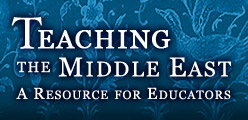Introduction
Empires and Nation-States are types of political organization that developed slowly over thousands of years in the Middle East as they did elsewhere in the world. These terms require some definition.
“Politics” could be defined as the way a society makes decisions and distributes resources to its members. Even small-scale hunting and gathering societies are governed by politics. But as societies grow larger, certain individuals or families acquire the power to make decisions for others. Eventually, these decision-making roles become institutions that we would recognize as parts of government including kingship, bureaucracies, and written laws.
A “state” is a form of government that has authority within its territory to enforce its decisions by control of a legal system, an army, and sometimes religious practices. A “nation” is a culturally similar group of people, and a “nation-state” is a state whose geographic boundaries are the same as those of a cultural group. While many scholars see the nation-state as a product of eighteenth- or nineteenth-century Europe, some ancient Middle Eastern societies—particularly ancient Egypt—were very much like nation-states. Finally, an “empire” is a political unit that has conquered other states and other cultural groups.

 Geoff Emberling
Geoff Emberling
Former Chief Curator, Oriental Institute Museum of the University of Chicago
Guiding Questions
1. How do societies make decisions when they are small scale? How do those patterns of decision-making change as those societies grow larger?
2. What stages did some societies go through as they developed into empires? What are some differences between settlements of 3,000 people and those with 20,000 people?
3. What special qualities and sophisticated elements characterize the early Middle Eastern cities?


 Print Page
Print Page
